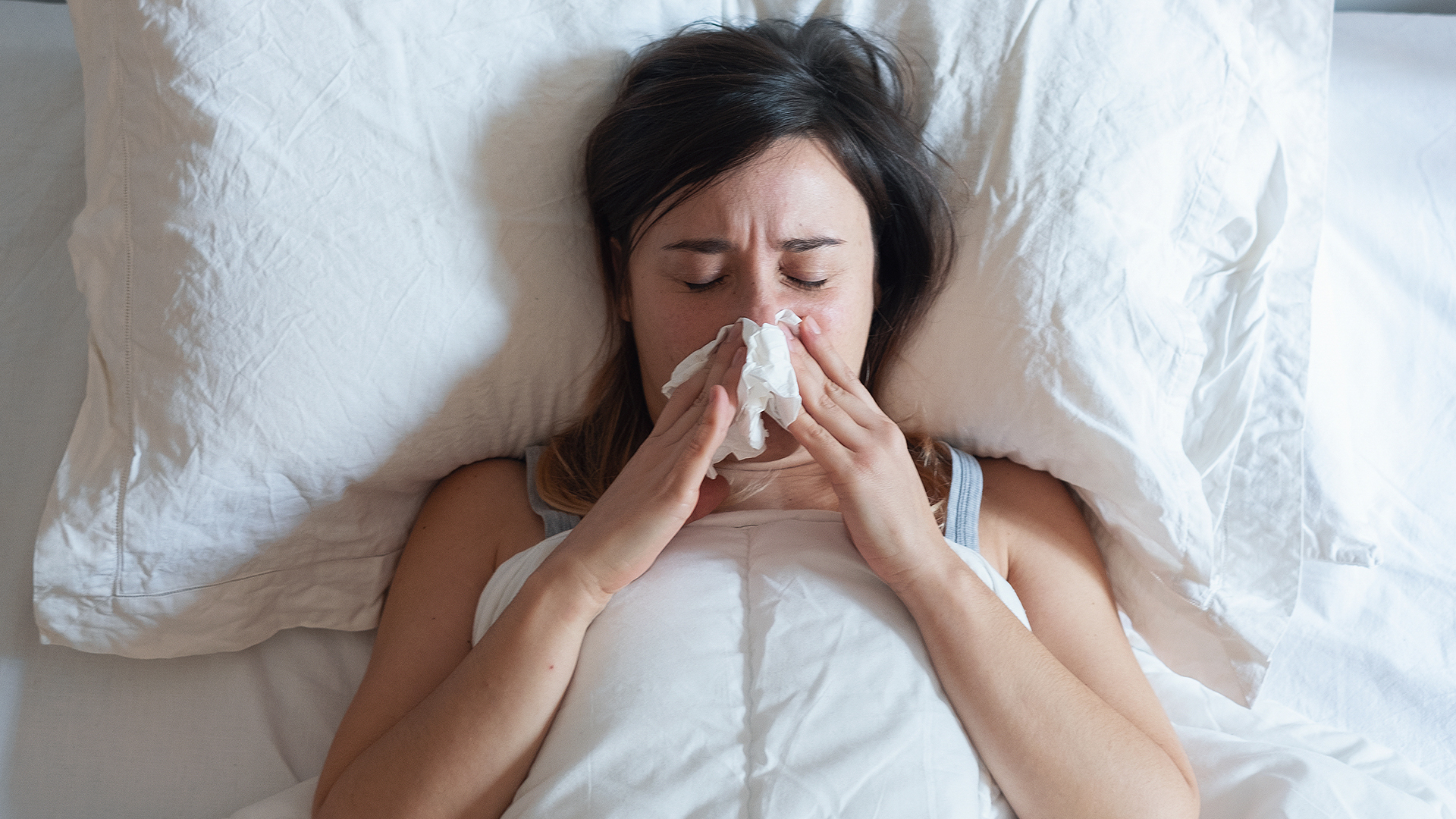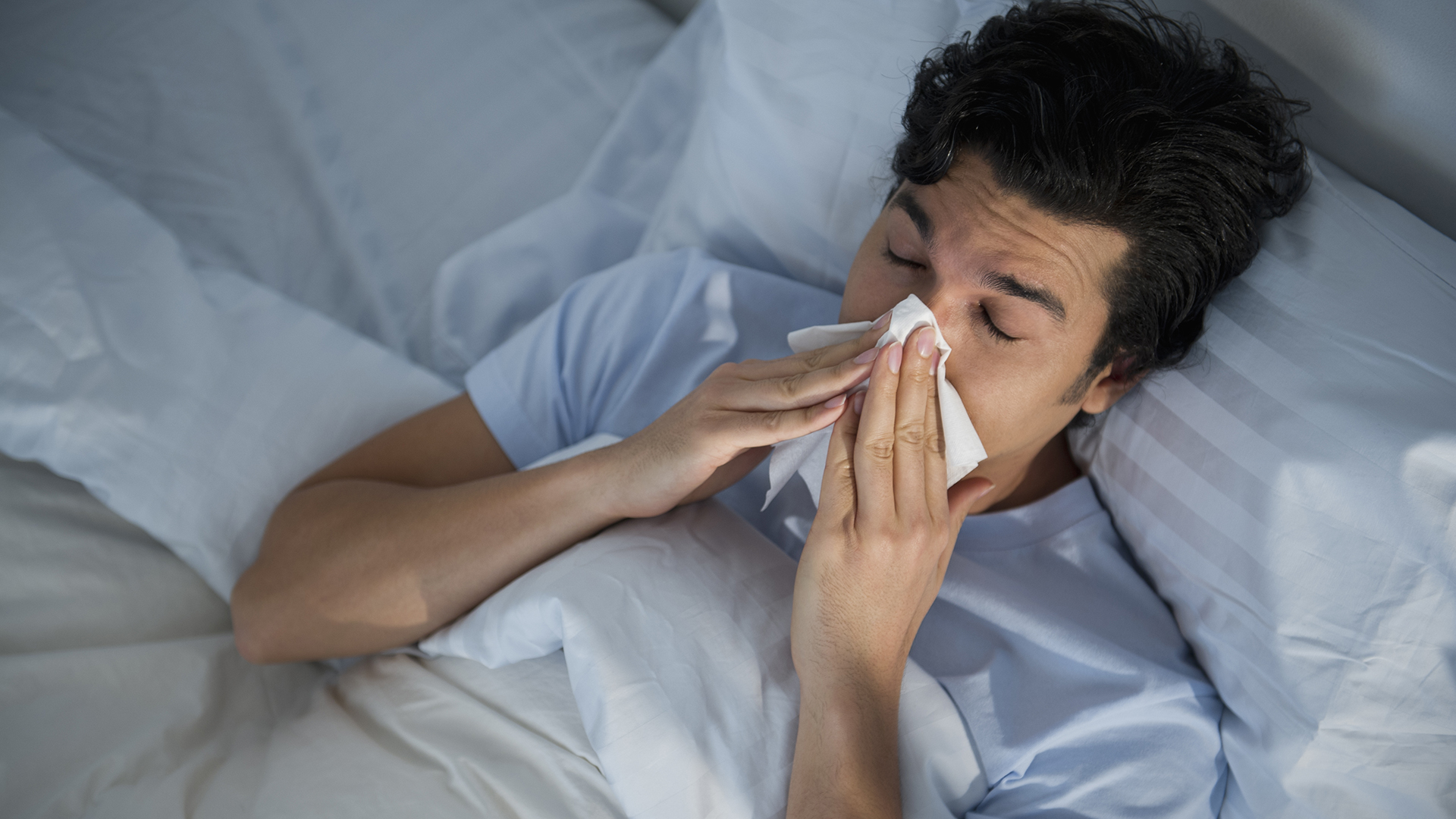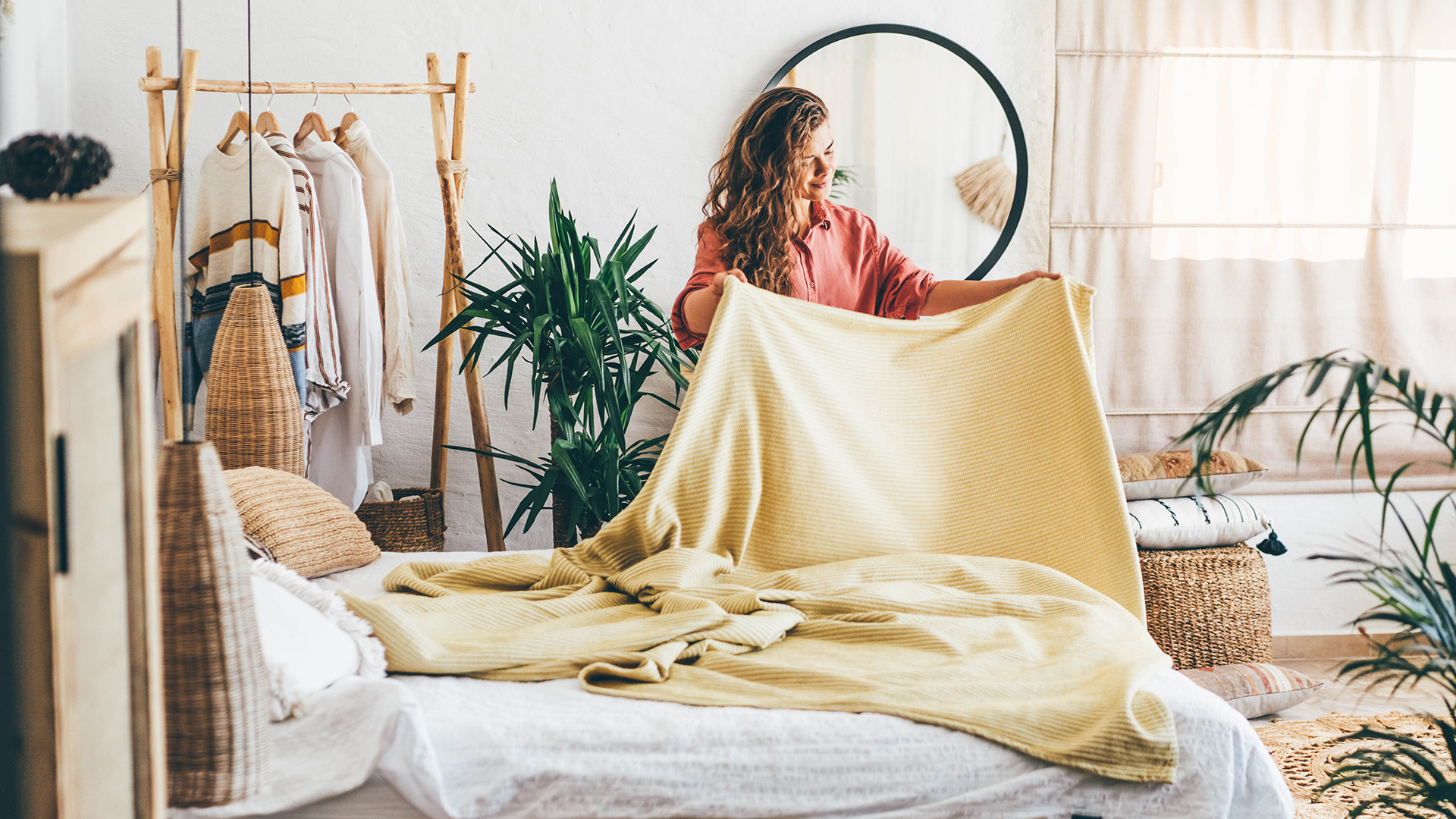Showering before bed helps you fall asleep fast during allergy season — here's why
Plus, four other nighttime routine hacks to help you sleep better during allergy season

Spring is here, and with it comes the irritating impact pollen-related allergies can have on our sleep. Blocked sinuses and itchy eyes are an annoyance during the day, but during the night they could be stopping you from falling asleep fast – and sleeping through the night.
While the best mattresses with the latest in hypoallergenic properties can help reduce symptoms, you're still at the mercy of the pollen count. However, small changes to your nighttime routine can limit the effects and help you fall asleep faster and enjoy more restorative sleep.
5 key nighttime routine changes to help you fall asleep fast during allergy season
1. Take a cool shower (or bath)
When you spend time outside, pollen in the air starts to settle on your skin and hair. If you go to sleep without washing, those same allergens then shift to your bed sheets and mattress. Incorporating a relaxing shower or bath into your bedtime routine isn't just a great way to wind-down in the evening, it also ensures the pollutants of the day are washed away and not transferred to your sheets.

On a similar note, when you change into your pajamas, don't leave your old clothes lying on the bed or the floor. Pollen will cling to your clothes the same way it does to your skin, and when you ditch your jeans on the bed, you're also leaving behind sleep-disrupting allergens.
2. Relax with a cold compress
Are your itchy eyes are keeping you awake? First things first, don’t rub them. As Tina Patel, Contact Lens Optician at Feel Good Contacts, explains, rubbing your eyes can make symptoms worse. “The act of rubbing your eyes releases histamine, which aggravates allergy symptoms further,” she says.
To resist rubbing, reach for a cold compress and place over your closed eyelids. “Using a cold compress for 5-10 minutes a day will be extremely beneficial for reducing puffiness, redness and swelling from hay fever,” explains Tina. “This will provide quick and easy relief that will be much more effective than rubbing your eyes.”
If you don’t have a cold compress, it's easy to make your own: place some ice cubes in a sealable plastic bag, half fill with water, then close the bag, making sure to squeeze out the air. Wrap the whole thing in a damp towel, and place on your eyes for up to 10 minutes. With your eyes closed, you can use this time to enjoy in a calming sleep visualization method.
Sign up to get the BEST of Tom's Guide direct to your inbox.
Get instant access to breaking news, the hottest reviews, great deals and helpful tips.
3. Add an extra pillow
Blocked sinuses and stuffy noses are common side effects of allergy season. “Congestion caused by allergies can greatly impact the quality of our sleep, which in turn can have a knock on effect on our physical and mental health,” explains Dr Lindsay Browning, psychologist, neuroscientist and sleep expert at And So To Bed. If congestion is keeping you awake, raising your head can help drain the sinuses, so you can breathe easier.

To achieve this, simply add an extra pillow to your bed. The added height should gently raise your head without putting your neck at an awkward angle, keeping you supported and elevated. If you're struggling to find the perfect angle for both your neck and your nose, our best pillow guide contains some adjustable options.
When allergies are disturbing your sleep, it's essential that your bed is providing the comfort and support you need. If you're thinking of replacing your bed, head to our Memorial Day mattress sales hub, for all the latest and best deals.
4. Keep the windows shut
The nights might be getting warmer, but if allergies are keeping you awake, it’s best to leave your bedroom window closed (even during the day). Allergens can sneak in through an open window and once indoors, they'll settle on your bedding. So instead of cuddling up in clean sheets, you might be crawling into a hotbed of allergens.
Compensate for the closed window by switching your winter bedding for a lower tog duvet or a lightweight comforter (or for a specialist solution, check out the best cooling mattresses). Adding a fan to your bedroom can also chill out your sleep set-up – and don't forget that cool shower we mentioned earlier.
An air purifier is another way to keep allergens out of your room. The best air purifiers draw in air, pass it through a filter to remove pollen and other pollutants, and release it into your bedroom cleaner and fresher.
5. Change your bedding often
Despite your best efforts, allergens are likely to still be getting into your sleeping space. Because you can't stop that happening completely, it's essential to make sure that you're regularly changing your bedding.

During the warmer months, you might consider airing your bedding outside. There are advantages and disadvantages to doing this. Outdoors, your bedding is more exposed to pollen. And be aware that sunlight can damage some fabrics, so make sure to read the care instructions.
But the outdoors doesn't have to be an allergy-sufferers worst enemy. Sunlight is a known disinfectant, and hanging your bed sheets in the sun can kill mold and bacteria, as well as remove moisture. Just perhaps ask someone else to deal with the laundry?
How to choose a hypoallergenic mattress
Dust mites, pet dander, pollens and mold are all common allergens that like to make your mattress their home, congesting your nasal passages and disrupting your sleep. However, investing in one of the best hypoallergenic mattress will help keep those pesky allergen triggers at bay.
Hypoallergenic mattresses are mattresses that provides protection against things that might set off your allergies. It does this by using allergy-proof materials, such as natural latex and organic wool and cotton, which help repel seasonal allergens.
Due to their premium natural materials, hypoallergenic mattresses usually command a premium price tag. However, keeping an eye out for regular mattress sales will help you secure a hypoallergenic bed - like the Awara Natural Hybrid mattress - at a discounted price. But if you can wait, waiting for the Memorial Day mattress sales will likely mean getting a new bed at the best possible price.

Ruth is a staff writer at Tom’s Guide, covering all things mattress and sleep. She has a deep interest in the link between sleep and health, and has tried enough mattresses to know the right bed really can make a difference to your wellbeing. At Tom’s Guide she writes to help people sleep better, from how-tos to the latest deals to mattress reviews, and has interviewed an array of specialists who share her passion. Before joining the team at Tom’s Guide, Ruth worked as a sleep and mattress writer for our sister website, TechRadar.
